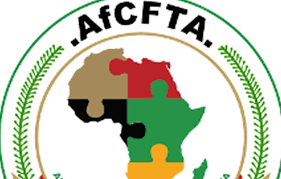- The East African Community member-countries have come to an agreement on the list of goods on which the countries will remove tariffs n to facilitate trading within the continent, under the African Continental Free Trade Area (AfCFTA) in 10 years.
- EAC Tariff Offer for ‘Category A’ products was adopted by the member countries represented by Ministers in charge of Trade, Industry, Finance, and Investments.
The East African Community member-countries have come to an agreement on the list of goods on which the countries will remove tariffs n to facilitate trading within the continent, under the African Continental Free Trade Area (AfCFTA) in 10 years. EAC Tariff Offer for ‘Category A’ products was adopted by the member countries represented by Ministers in charge of Trade, Industry, Finance, and Investments. These amounted to 90.2 percent to be liberalized in 10 years after the start of trading under the AfCFTA. For the “Category A” products, tariffs will be waived within a period of 10 years, for Least Developed Countries, and five years for Developing Countries. Agreement has been reached on 5,129 tariff lines out of the total 5,688 lines. Negotiations are on for the remaining products.
Products that are regarded as sensitive to a country, are categorised as “Category B”. This accounts for about 7 percent of the total products or tariff lines. The tariffs on products in Category B will be removed within 13 years for LDCs and 10 years for Developing Countries. The “Category C” or 3 percent of the total tariffs are to be retained.
The EAC secretariat will now submit the EAC “Category A” Tariff Offer to the AfCFTA Secretariat in Accra, Ghana for further action .Once approved by the AfCFTA Secretariat, the EAC will be ready to trade in these products under the agreement. So far, AfCFTA has so far verified 29 tariff offers. With the inclusion of EAC the number will go up to 34.
The EAC is negotiating with the AfCFTA as a bloc (State Party) to enable Kenya, which falls under the category of Developing Country, not to be subjected to the different terms set for other developing countries.





